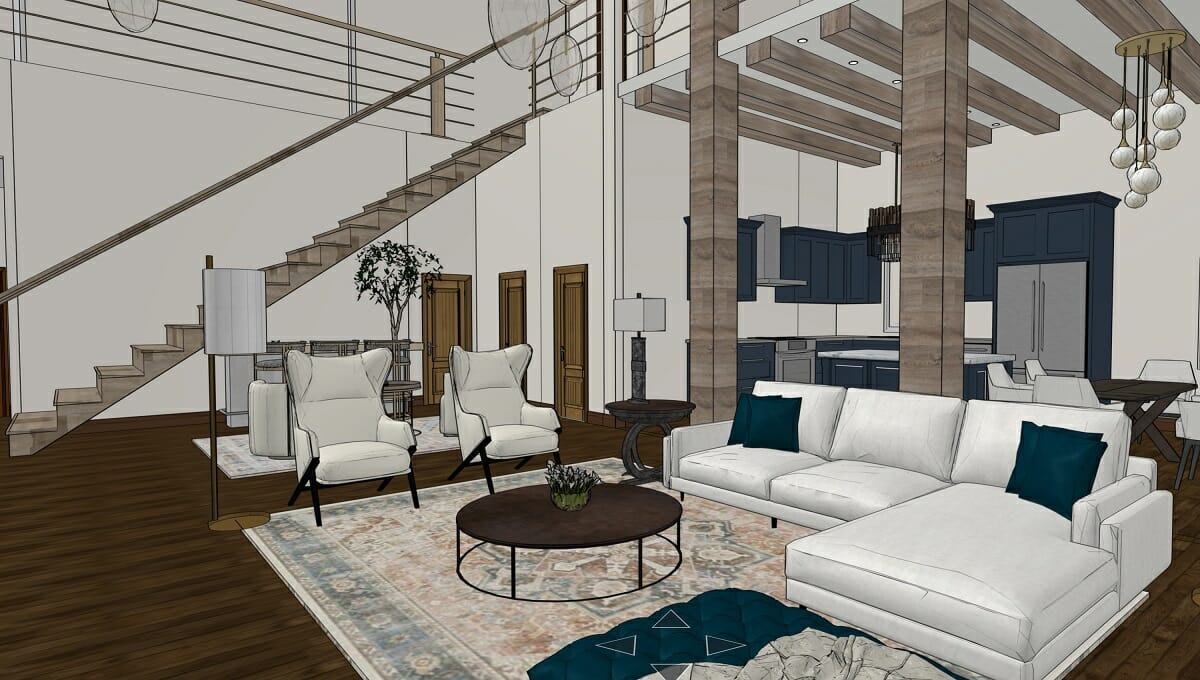Are you passionate about transforming spaces and creating beautiful environments? A career in home decor can be both fulfilling and lucrative. Whether you’re just starting or looking to switch lanes in your professional life, this comprehensive guide dives deep into the various career options within the home decor industry, the skills needed, and the paths to success. With personal anecdotes sprinkled throughout, this article aims to help you navigate the vibrant world of interior design and home decor.
Understanding Home Decor Careers
Home decor careers encompass a wide range of roles, from interior designers to color consultants and beyond. This section will provide an overview of what to expect in this dynamic field.
What is Home Decor?
Home decor refers to the art and science of enhancing the interior of a space to achieve a healthier and more aesthetically pleasing environment. This can involve choices related to color schemes, furniture selection, layout design, and decorative elements.

Career Options in Home Decor
- Interior Designer: Focuses on designing functional and aesthetically appealing indoor spaces.
- Decorating Consultant: Offers advice on furnishing and decor choices.
- Home Stager: Prepares homes for sale to make them more appealing to potential buyers.
- Color Consultant: Specializes in color application and its effects on mood and perception.
- Furniture Designer: Designs and creates custom furniture pieces.

Skills Needed for a Career in Home Decor
Success in home decor careers often hinges on a blend of creative, technical, and interpersonal skills. Here’s a deeper look at the essential skills required.

Creative Vision
Having an eye for design and a strong sense of aesthetics is crucial. Whether it’s through drawing inspiration from nature or current trends, creative vision helps shape unique spaces.

Technical Proficiency
Familiarity with design software (like AutoCAD or SketchUp) and an understanding of architectural principles can greatly enhance your career opportunities.

Communication Skills
Engaging clients effectively and articulating design concepts is vital. Strong communication promotes collaboration and ensures client satisfaction.

Project Management
From budgeting to scheduling, being able to manage projects efficiently is a key skill in this field.

How to Start a Career in Home Decor
Starting a career in home decor can be an exciting journey. Below, we outline various pathways you can take to enter the industry.
Education and Training
While formal education isn’t always a requirement, it can provide a solid foundation. Many aspiring designers pursue degrees or certifications in interior design, fine arts, or related fields.
Recommended Education Programs
| Program Type | Duration | Key Skills Learned |
|---|---|---|
| Bachelor’s Degree in Interior Design | 4 years | Design theory, color theory, architectural drafting |
| Associate Degree in Interior Design | 2 years | Basic design concepts, space planning, materials |
| Certificate Programs | 6 months – 1 year | Specific skills (e.g., color theory, staging) |
Gaining Experience
Internships or assistant positions can provide hands-on experience. Participating in design competitions or volunteering for community projects can also be beneficial.
Building a Portfolio
Creating an impressive portfolio is essential for showcasing your work to potential clients or employers. Include before-and-after photos, mood boards, and design sketches.
Networking in the Home Decor Industry
Networking can open many doors in the interior design field.
Joining Professional Organizations
Organizations such as the American Society of Interior Designers (ASID) offer valuable resources, networking opportunities, and industry insights.
Attending Industry Events
Trade shows, design expos, and local events can be great places to meet other professionals and learn about the latest trends in home decor.
Home Decor Career Paths: A Detailed Look
Here we’ll explore specific career paths within home decor, detailing roles, responsibilities, and typical salary ranges.
1. Interior Designer
Role: Interior designers create functional, safe, and aesthetically pleasing environments. They work with clients to understand their needs and preferences.
Salary Range: $40,000 – $100,000+ annually, depending on experience and location.
Pros and Cons of Being an Interior Designer
| Pros | Cons |
|---|---|
| Creative satisfaction | Long hours and tight deadlines |
| High demand in various markets | Requires good negotiation skills |
| Diverse work environment | Client management challenges |
2. Home Stager
Role: Home stagers prepare properties for sale by making them look their best. This involves decluttering, rearranging existing furniture, and adding decor items.
Salary Range: $30,000 – $70,000 annually, depending on experience and region.
Pros and Cons of Being a Home Stager
| Pros | Cons |
|---|---|
| Flexible hours | Income can be inconsistent |
| Opportunity to work on diverse projects | Requires a knack for quick transformations |
3. Color Consultant
Role: Color consultants advise clients on color schemes that enhance the mood and usability of spaces.
Salary Range: $30,000 – $75,000 annually.
Pros and Cons of Being a Color Consultant
| Pros | Cons |
|---|---|
| Working with a variety of clients | Subjective opinions on color choices |
| Constantly evolving trends | Requires ongoing education on color theory |
Trends in Home Decor Careers
Staying updated with trends is crucial in this ever-evolving field. Here are some current trends shaping home decor careers.
Sustainability in Design
With the growing emphasis on sustainability, many designers are opting for eco-friendly materials and practices. This trend can open new career opportunities focused on green design.
Technology Integration
With advancements in technology, designers are using virtual reality and augmented reality to help clients visualize spaces and layouts.
Frequently Asked Questions (FAQs)
What qualifications do I need to become an interior designer?
Most interior designers have a bachelor’s degree in interior design or a related field. Additionally, obtaining certification from a recognized organization can enhance job prospects.
Is it necessary to have a portfolio when starting in home decor?
Yes, having a portfolio is essential. It showcases your design style and projects to potential clients or employers.
What is the average salary for home decor professionals?
Salaries can vary widely based on experience, role, and geographic location. On average, most home decor professionals earn between $30,000 – $100,000 annually.
How can I make my home decor career more successful?
Stay updated on industry trends, continually educate yourself, network with other professionals, and develop a strong personal brand.
Conclusion
A career in home decor can be incredibly rewarding for those with a passion for design and creativity. By following the pathways outlined in this article—whether through education, experience, or networking—you can carve out a successful niche in this vibrant industry. With a willingness to learn and adapt, the possibilities are endless. Start your journey today, and transform not just spaces, but lives!